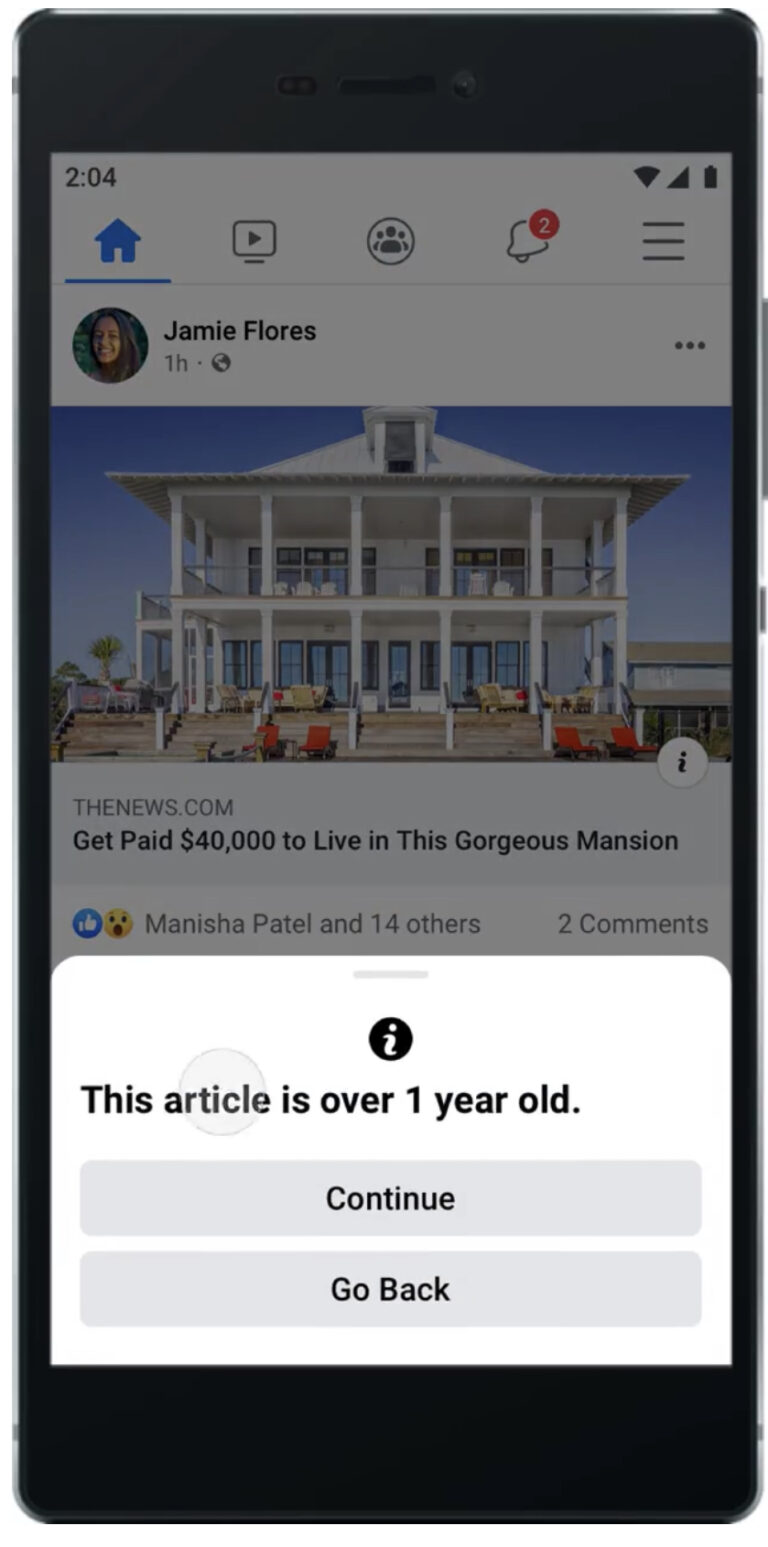Facebook Update Likely to Hurt Traffic to Older Web Pages

An update to Facebook’s UI is ready to adversy affect traffic to old site pages.
Facebook is refreshing its interface with another sort of warning that is probably going to hurt traffic to more established pages.
Going ahead, Facebook will advise clients when they’re going to share an article that is more than 90 days old.
The warning is intended to allow clients to reexamine sharing the article. They can either return to the screen they were on or proceed with their post.
While 90 days is the limit for this notice to appear. Facebook marketing will likewise note when the article is a lot more established.

“To guarantee individuals have the setting they have to settle on educated choices about what to share on Facebook, the warning screen will show up when individuals click the offer catch on articles more established than 90 days, yet will permit individuals to keep sharing on the off chance that they choose an article is as yet important.”
For what reason is Facebook Doing This?
John Hegeman, Facebook VP of Feed and Stories, says a while of inward examination finds the practicality of an article is key when clients choose what to peruse, trust, and offer.
This is a great instance of an update with flawed advantage for clients and a clearly negative effect on distributers.
There’s certain to be less portions of “old” articles on Facebook due to this update, which loots those distributers of chances for more traffic.
An article that is 90 days old isn’t actually antiquated history either. While an article on COVID-19 composed 90 days prior might be seriously obsolete, not all articles are immaterial following 3 months.
As terrible as this searches for distributers, obviously even media sources themselves have communicated worry about old stories being shared as flow news.
Facebook says as much in its public statement:
“News distributers specifically have communicated worries about more established stories being shared…
Some news distributers have just found a way to address this on their own sites by noticeably naming more established articles to keep obsolete news from being utilized in deceiving ways.”
It seems like distributers are putting forth a valiant effort to forestall incidental portions of old articles as current news. So for what reason is this still such an issue on Facebook?
The Real Problem: Sharing Without Clicking
As Facebook states in the above statement, distributers are making a special effort to make dates on articles increasingly noticeable.
On the off chance that clients were proactive about checking the dates of articles before sharing, at that point I would contend this notice wouldn’t be essential.
Lamentably, it’s normal for clients to share content without tapping on the connection first. So they wouldn’t know when an article was distributed in the event that they never see it in the first place.
This has become such an issue across internet based life that Twitter has executed comparative measures too.
Twitter is at present testing an element that cautions clients when they’re going to retweet a connection they haven’t tapped on.
Twitter’s test include is restricted to Android until further notice.
See: Twitter Will Check if Articles Are Read Before Sharing
It’s not satisfactory how broadly Facebook’s old article notice is being turned out, yet the organization didn’t utter a word about it being a restricted test.
In spite of the fact that Facebook mentioned it will test comparative warnings throughout the following not many months.
“For posts with joins referencing COVID-19, we are investigating utilizing a comparable notice screen that gives data about the wellspring of the connection and guides individuals to the COVID-19 Information Center for definitive wellbeing data.
Through giving more setting, we will likely make it simpler for individuals to distinguish content that is opportune, solid and generally important to them.”
Source: Facebook Newsroom